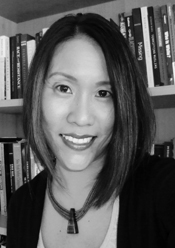Rutgers keynote, panel will explore life in post-9/11 society

The departments of American Studies, Women’s and Gender Studies, and English of Rutgers’ School of Arts and Sciences are sponsoring the October 1 event with the Collective for Asian American Studies. Open to the general public, it will focus on how the war on terror has affected the Asian Pacific American community. James J. Yee, former U.S. Army Muslim chaplain At Guantanamo, will give the keynote address. Serving as panel moderator will be Sylvia Chan-Malik, an assistant professor of American Studies and Women’s and Gender Studies, whose research examines the intersection of race, religion, gender and sexuality through a framework of American transnationalism and comparative ethnic studies.
Rutgers Today spoke with Chan-Malik about the upcoming program, as well as her impression of where the war on terror might ultimately lead our society.
Rutgers Today: In 2003, James J. Yee – a Lutheran convert to Islam – was arrested and imprisoned on suspicion of espionage in a case that proved groundless. The New York Times called the military’s prosecution of the former Army Muslim chaplain mean-spirited and misguided, warning that it “illustrates the danger of the war on terrorism to trump basic rights.” Was this an anomaly, or are incidents like this more common than we’d like to believe?
Sylvia Chan-Malik: While James Yee’s case received substantial media attention, unfortunately, it was by no means an anomaly, but only one higher-profile instance how pervasive ideologies of anti-Islamic racism have become in the post-9/11 decade. From the highest ranks of the military to mainstream political and media discourse, down to the day-to-day interactions of people and their neighbors, the notion that Islam is the “enemy” and Muslims are not be trusted is a central logic through which institutions and individuals make decisions these days. Yee’s case, and more recently, the discovery of the NYPD’s surveillance tactics of the Muslim students in New Brunswick and the recent shooting at a Sikh temple in Wisconsin demonstrate how anti-Islamic racism not only affects Muslims, but has restructured the very face of religious intolerance and racism today.
Rutgers Today: Your book manuscript, A Part of Islam: Race, Gender, and the Making of Muslim America, 1959-Present, tracks the cultural history and consciousness of Islam in America from the Cold War through the culture wars of the 1980s and 1990s and the war on terror. What overall picture can you give us of the trajectory of that history over the past half-century?
Sylvia Chan-Malik: Before the 1970s, the vast majority of Muslims in the United States was African American. While most people are familiar only with the Nation of Islam, black practices of Islam are extremely heterogeneous, influenced by Sunni orthodoxy, mystical Sufism, messianic prophecies, etc. Yet to be black and Muslim meant one assumed a moral and ethical stance against U.S. state-sponsored racism. So the central question my book asks is: How do we reconcile these antiracist (as well as what I argue were feminist) impulses of Islam’s “foundational blackness” in the U.S. with current associations of Islam as intrinsically foreign and linked to terrorism? And how has this foundational blackness shaped the development of “Muslim-American” identity and communities? By asking these questions, I can situate contemporary anti-Islamic racism in the larger context of race relations in the U.S., as well as addressing the incredible diversity, and thus complexity, of contemporary Muslim-American communities.
Rutgers Today: Has the nation become more tolerant of intolerance since 2001? What do reports of increased racial profiling and surveillance say about race relations and society as a whole, and do you see this atmosphere changing any time in the near future?
Sylvia Chan-Malik: We live in a time in which racism, as well as classism, sexism and homophobia, is simultaneously rampant and invisible. On the one hand, racism is everywhere – in the coded language of politicians, law enforcement practices, the violent inequality that determines the uneven distribution of state and social resources (education, housing, transportation, etc.). On the other hand, racism no longer speaks its name; even vitriolic racism espoused by the likes of the Tea Party/birthers is couched in an oftentimes “liberal” language of equality and democracy. The task, then, is to decode and debunk all this disingenuous doublespeak that obscures the persistence of racism and inequality.
Rutgers Today: What do you hope audience members take away from the October 1 program?
Sylvia Chan-Malik: In my classes, I remind students to view themselves in the context of history. I ask them to understand that their lives, choices and even dreams are shaped by what has preceded them. They have, however, the option of submitting to an unjust past, or imagining, and then working to create, an alternative, and hopefully better, context for their – our – future. Asian Americans have rarely been spoken about in relation to the war on terror. However, if you look at U.S. history, the Chinese were the only group ever to be excluded from citizenship; Japanese Americans during WWII were summarily rounded up and interned; and the Philippines, Korea, Vietnam and numerous other parts of Asia have been profoundly affected by the consequences of American militarism and occupation. I hope the audience leaves with an understanding of how contemporary anti-Islamic racism in the U.S. is not simply the consequence of 9/11, but has emerged in relation to longstanding and overlapping legacies of racism and xenophobia in the U.S. I also hope the program demonstrates how building political coalitions among Asian American, African American and Muslim American communities makes perfect sense.
Media Contact: Fredda Sacharow
732-932-7084 Ext. 610
E-mail: fsacharo@rci.rutgers.edu